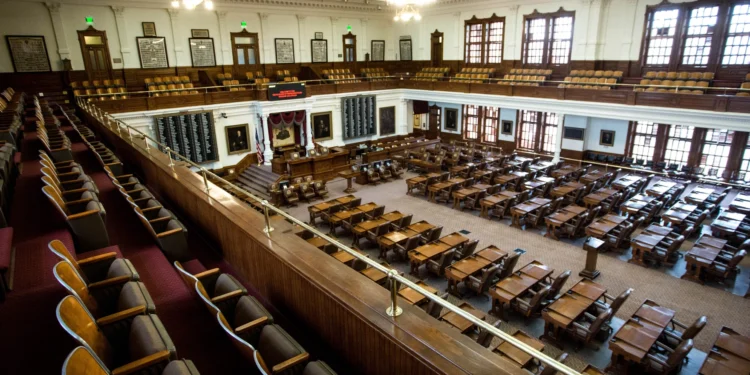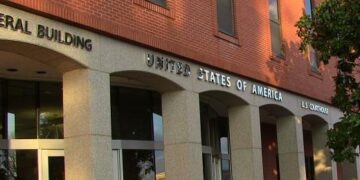July 21, 2025 Story by: Editor
This article has been updated to include new information on the scheduled redistricting debates in major Texas cities.
The Texas House of Representatives’ Select Committee on Redistricting will convene public hearings in Arlington, Austin, and Houston this week. This marks the committee’s first hearings during the ongoing special legislative session, called by Governor Greg Abbott, which includes redrawing congressional district boundaries.
The hearings are part of a broader statewide tour aimed at gathering public input on proposed congressional redistricting plans.
- Thursday, July 24 in Austin at 2 p.m. or upon adjournment of the Texas House.
- Saturday, July 26 in Houston at 11 a.m.
- Monday, July 28 in Arlington at 5 p.m. at the University of Texas at Arlington.
*Links include a watch now option*
Hearing Details
- Purpose: To collect public testimony on how congressional district boundaries should be redrawn.
- Access: Hearings will be streamed online, and both in-person and remote testimony options will be made available.
Background
These hearings follow increasing pressure from the U.S. Department of Justice and recent court rulings that found aspects of Texas’s current political maps violate the Voting Rights Act.
Texas lawmakers returned to the Capitol today for a high-stakes special legislative session focused on redrawing the state’s congressional map, following escalating legal challenges and a rebuke from the U.S. Department of Justice over alleged racial gerrymandering.
Gov. Greg Abbott formally convened the session beginning Monday, July 21, with redistricting designated as a central agenda item. In a press release, the governor said the session will prioritize “legislation that provides a revised congressional redistricting plan in light of constitutional concerns raised by the U.S. Department of Justice.”
The call comes two weeks after the DOJ’s Civil Rights Division sent a letter to Abbott and Texas Attorney General Ken Paxton, warning that four congressional districts—TX-09, TX-18, TX-29, and TX-33—violate the Constitution’s Equal Protection Clause due to racially discriminatory line-drawing practices.

Photo caption: A map of the current Congressional Districts for the 119th Congress (2025-2026) (Photo courtesy of: The Texas House Committee on Congressional Redistricting)
All four districts are based in either the Houston or Dallas-Fort Worth metro areas and are currently represented by Black or Hispanic members of Congress.
The DOJ alleges that these districts were crafted as unlawful “coalition districts,” where race was the predominant factor in creating boundaries aimed at concentrating minority voters, a practice that no longer holds up under recent federal redistricting precedent.
The letter, dated July 7, 2025, is the latest flashpoint in a long-running legal and political battle over Texas’s post-2020 Census map. The congressional boundaries adopted by the Republican-led legislature in 2021 have been challenged in federal court multiple times, with plaintiffs arguing that they dilute minority voting strength across several regions of the state.
The seats in question include:
- TX-09 (Greater Houston): Held by Rep. Al Green (D)
- TX-18 (Houston): Formerly held by outgoing Rep. Sylvester Turner; currently vacant
- TX-29 (East Houston): Held by Rep. Sylvia Garcia (D)
- TX-33 (Dallas/Fort Worth): Held by Rep. Marc Veasey (D)
The special session will begin at 12:00 p.m. on July 21, 2025, and could last up to 30 days. If lawmakers fail to adopt revised maps, federal courts could step in before the 2026 election cycle, which begins with primary filing in November.
With Texas poised to play a central role in national elections—and with its shifting demographics under national scrutiny—the outcome of this session could shape political power in the state for the rest of the decade.
Texas’ current maps were drawn by the Republican-dominated Legislature in 2021 with an eye toward protecting incumbents and ensuring that two congressional seats Texas gained due to population growth would be held by the GOP. The maps worked as intended, with Republicans winning 25 of 38 congressional seats in 2022 and 2024.
The map was immediately challenged in court by a group of plaintiffs alleging that it discriminated against Black and Latino voters. Section 2 of the Voting Rights Act prohibits election and voting practices that disadvantage minority groups, including drawing boundaries that dilute their ability to elect their preferred candidate by packing them into a single district or dispersing them throughout multiple.
The nearly 4-year-old legal challenge went to trial in May and has yet to be decided.
The case, heard by a three-judge panel, scrutinizes congressional and state legislative maps drawn by the Republican-controlled Legislature following the 2020 census. Plaintiffs argue that these maps dilute minority voting power and violate the Voting Rights Act and the U.S. Constitution.
At trial in El Paso, representatives for the state and its map-drawers repeatedly testified that they were blind to race when crafting the maps and said they did not draw “coalition districts,” where different minority groups are combined to constitute a majority, which the state maintains are unconstitutional.
The court’s decision is anticipated to be delivered in the coming months. Depending on the outcome, Texas may be required to redraw its legislative and congressional maps to ensure compliance with federal laws protecting minority voting rights. The ruling could also influence redistricting practices in other states, particularly those with significant minority populations and histories of voting rights challenges.
In March, The Department of Justice has withdrew from a lawsuit challenging Texas’ legislative and congressional district maps, which were redrawn following the 2020 U.S. census. A case initially brought forth by the League of United Latin American Citizens (LULAC) and supported by Congresswoman Eddie Bernice Johnson, marks a significant shift in the legal landscape surrounding electoral districting in the state. The lawsuit alleged that these maps discriminated against Latino and Black voters by limiting their ability to participate equally in the electoral process.
A DOJ attorney told a panel of judges, shortly before the start of a courtroom trial, that the federal government wanted to dismiss all of its claims against the state’s maps of congressional and state legislative voting districts. The federal government had previously claimed those maps dilute the voting strength of Black and Latino voters.
Source: Texas Tribune / The Hill / Redistricting / Statesman

















